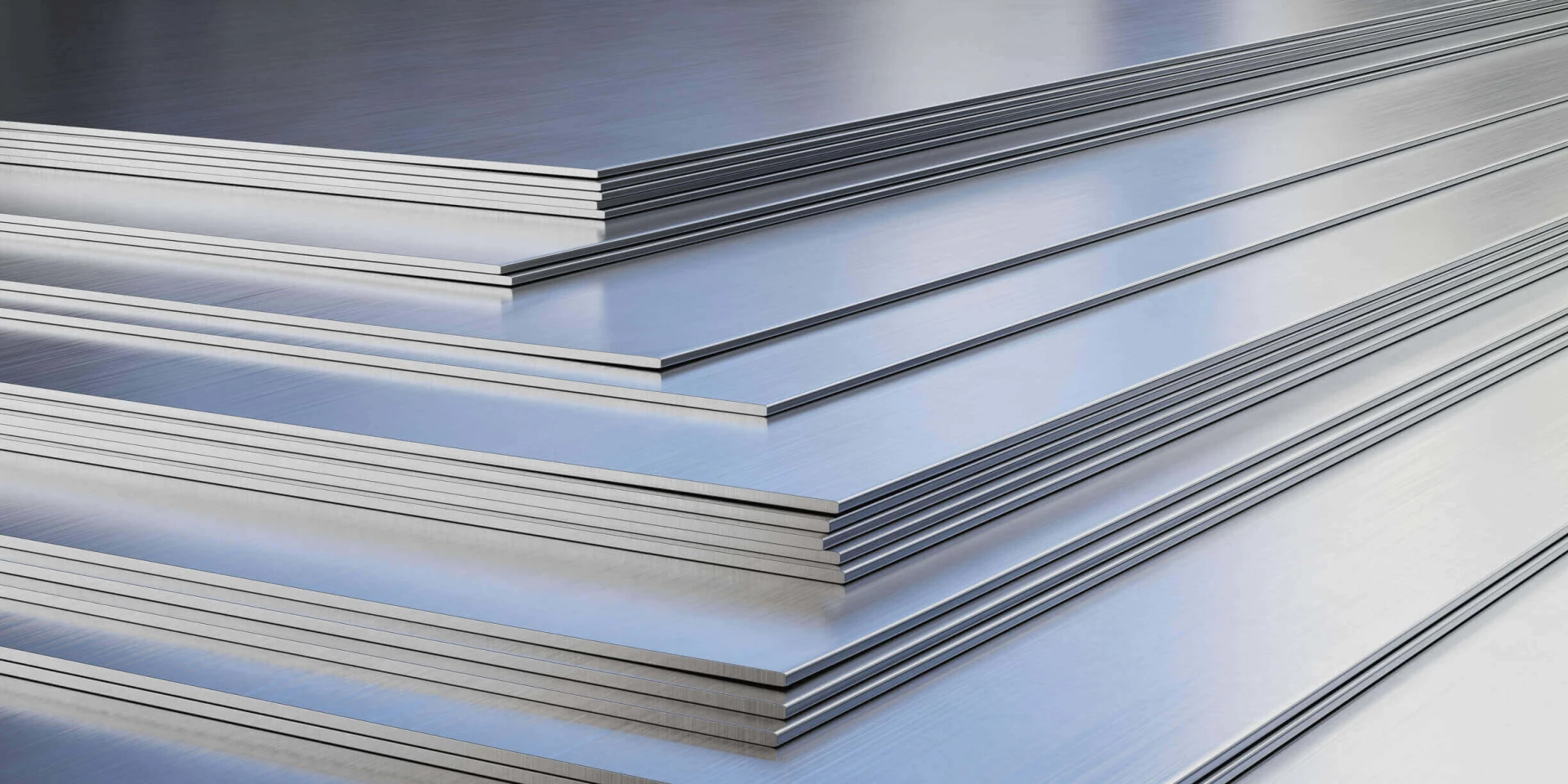It is crucial to select the right sheet metal for your produced components since it has a direct impact on the finished product’s performance, durability, and general quality. Sheet metal fabrication may be done using a variety of metals and metal alloys, including stainless steel, aluminum, copper, brass, and titanium.
Each material has special qualities, such as strength, corrosion resistance, conductivity, or malleability, therefore, it is crucial to make a deliberate choice to match the demands of the design and provide the best results.
Common Sheet Metal Materials
There are several significant types of sheet metal materials used in various industries, such as:
Stainless steel
Common in food processing, medical equipment, and architecture; corrosion resistance, cleanliness, and aesthetic appeal.
Carbon steel
Used in a variety of applications; affordable; strong; yet prone to corrosion.
Galvanized steel
Increased corrosion resistance due to zinc coating; common in building and outdoor constructions.
Aluminum
Used extensively in consumer electronics, automobiles, and airplanes because it is lightweight and strong.
Copper
Excellent electrical conductivity; appropriate for plumbing and electrical components.
High strength steel
Utilized in structural applications; excellent strength-to-weight ratio.
Hot rolled steel
Hot-rolled steel is cheap and adaptable; frequently used for ordinary manufacturing needs.

Factors to Consider When Choosing Sheet Metal Materials for Fabrication
To guarantee optimum performance and functionality, various aspects should be considered when selecting the appropriate sheet metal material for your application. These elements consist of:
Type of metal
Metals of various sorts, such as alloy steel, stainless steel, aluminum, or copper, each have special qualities that might affect how well-suited they are to a certain application. Think about the qualities you want, including strength, conductivity, corrosion resistance, or aesthetic appeal.
Size of components
Your component’s dimensions and size will affect the type of sheet metal you choose. Depending on their intrinsic qualities and production capabilities, some materials could be better suited for bigger or smaller components.
Weight of the final product
Depending on your use, the finished product’s weight could be a key factor. For situations where weight reduction is critical, such in the aerospace or automotive sectors, lighter materials, like aluminum, may be favored.
Formability
The capacity of a sheet of metal to be bent, molded, or formed into the required component without breaking or severe deformation is known as formability. While some metals, like aluminum, have great formability, other metals could need more complex processing.

Tensile Strength and Hardness
Analyze the component’s required hardness and strength. High-strength steel and tool steel are two examples of materials with higher strength and hardness that are appropriate for applications where wear resistance or structural integrity is crucial.
Cost
Given the cost variations among various types of sheet metal, the cost is a crucial consideration. To choose the most economical choice, weigh the required features against the project budget.
Weldability
The weldability of the selected material should be considered if welding will be used throughout the manufacturing process. Some metals are easier to weld than others, and the welding procedures needed may influence the material selection.
Ductility and Elongation Ratio
A material’s ductility is defined as its capacity to flex under tensile stress without breaking. To be sure the material you choose can survive the required deformation, evaluate the ductility and elongation ratio needed for your application.
Finished requirements
Think about the component’s intended surface finish. Other materials can need extra surface treatments or coatings, while some, like stainless steel, can offer a polished, visually acceptable appearance.
Corrosion Resistance Requirement
Analyze the environment, including the component’s exposure to chemicals or moisture. To guarantee long-term durability, materials with excellent corrosion resistance, such as stainless steel or galvanized steel, may be required.
Malleability
A substance is said to be malleable if it can be easily molded into different shapes without breaking or cracking. Choose a material that can be manufactured following the needed malleability for your component.
Assembly process
Think about how your component was put together. Some materials could respond better to joining techniques like welding, riveting, or adhesive bonding.
By taking these aspects into account, you may select the best sheet metal material for your application, assuring maximum performance, durability, and cost-effectiveness.
Related Articles
Tools For Metal Fabrication
What is Metal Fabrication?
Let Us Help No Matter the Sheet Metal Material You Need
Experience Evans Manufacturing Company’s excellent quality and craftsmanship. Bring new heights to your sheet metal creations. To discuss your needs and get an estimate, get in touch with us right now.



